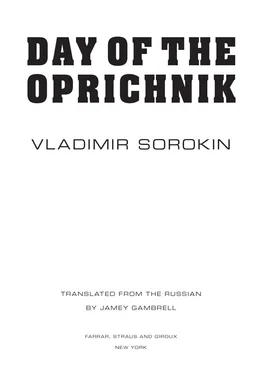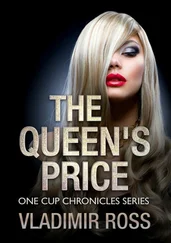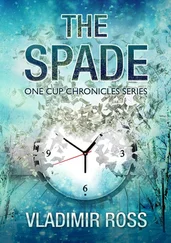Sorokin, Vladimir - Day of the Oprichnik
Здесь есть возможность читать онлайн «Sorokin, Vladimir - Day of the Oprichnik» весь текст электронной книги совершенно бесплатно (целиком полную версию без сокращений). В некоторых случаях можно слушать аудио, скачать через торрент в формате fb2 и присутствует краткое содержание. Год выпуска: 2011, Издательство: Farrar, Straus and Giroux, Жанр: Старинная литература, на английском языке. Описание произведения, (предисловие) а так же отзывы посетителей доступны на портале библиотеки ЛибКат.
- Название:Day of the Oprichnik
- Автор:
- Издательство:Farrar, Straus and Giroux
- Жанр:
- Год:2011
- ISBN:нет данных
- Рейтинг книги:5 / 5. Голосов: 1
-
Избранное:Добавить в избранное
- Отзывы:
-
Ваша оценка:
- 100
- 1
- 2
- 3
- 4
- 5
Day of the Oprichnik: краткое содержание, описание и аннотация
Предлагаем к чтению аннотацию, описание, краткое содержание или предисловие (зависит от того, что написал сам автор книги «Day of the Oprichnik»). Если вы не нашли необходимую информацию о книге — напишите в комментариях, мы постараемся отыскать её.
Day of the Oprichnik — читать онлайн бесплатно полную книгу (весь текст) целиком
Ниже представлен текст книги, разбитый по страницам. Система сохранения места последней прочитанной страницы, позволяет с удобством читать онлайн бесплатно книгу «Day of the Oprichnik», без необходимости каждый раз заново искать на чём Вы остановились. Поставьте закладку, и сможете в любой момент перейти на страницу, на которой закончили чтение.
Интервал:
Закладка:
We all cough as we wake up. Batya gulps his juice down. His pale face is sweating. Drinking your fill is the first order of business after fish. The second is belching. And the third is telling who did what.
We drink and belch.
We share what we’ve been through. This is the eighth time we’ve been the many-headed dragon Gorynych. Fish are a collective affair; only an idiot uses them alone.
As usual, Batya’s not very pleased.
“Why’re you always in such a hurry? You’re always wanting to burn or eat…You’re all fretting and fidgeting—first this way, then that. Calm down, fellows, one thing at a time.”
“It’s all because Shelet’s itching to start,” Yerokha says, coughing. “You’re always rushing to be on time, brother.”
“Oh, come on now,” says Shelet, stretching. “It was good, wasn’t it? I liked the part with the ship…the way they crawled through the portholes and jumped into the water!”
Mokry nods. “Great! But I liked that part in the city best: how we made a fan with seven streams, and the way they squealed in the skyscraper…cool! And Komiaga over there, isn’t he a genius? The way he did her! Smoke was comin’ out of that American broad’s asshole!”
“Komiaga’s inventive! He studied at the university, fuckin’ A!” Pravda grins.
Batya gives it to him on the lips—for cursing.
“Sorry, Batya, the devil led me astray.” Pravda makes a face.
“All in all—it was good,” Batya sums up. “They were the right kind of fish!”
“The right kind!” We all agree.
We dress.
If the gold sterlets are good you don’t feel weak afterward, just the opposite: you’re stronger. Like you’ve been at a resort in our sunny Crimea. Like it’s the end of September outside, and you just spent three weeks in Koktebel lying on the golden sand and submitting various limbs to sinuous Tatar massage. And now you’ve returned to Whitestone Moscow, landed at Vnukovo, disembarked from the silvery airplane, taken a deep breath of the Moscow country air, held it in—and right away you feel so good, your soul feels so perfect , so balanced, so important …you realize that life is good, you are strong, you’re part of a great endeavor, and your confederates are waiting for you, a daring bold fellow who’s up to his ears in urgent work. The enemy hasn’t lessened in number, His Majesty is alive and well, and, most important of all: Russia is alive and well, rich, huge, united. Over the course of those three weeks our Mother Russia hasn’t budged; quite the contrary, her eternal roots have delved even deeper into the earth’s meat.
Batya is right: after fish you feel like living and working, but after horse you only want to run and find another dose.
I glance at the clock—I spent only forty-three minutes Gorynyching, but inside it feels like an entire life. And this life gives me new strength to fight our adversaries and root out subversion. I have quite a few questions about the fish: if they are so helpful to us, the oprichniks, why not make them legal, at least for us exclusively ? Batya has conveyed our thoughts on this score to His Majesty more than once, but the response is adamant: the law is the same for all.
We come out of the bathhouse energized and seemingly more youthful. Each of us gives a half-ruble to tattooed Koliakha. He bows, pleased.
It’s frosty outside, but the sun has already hidden itself, rolled behind the clouds. Time to return to business. Right now, I’ve got a star-fall on my hands. It’s necessary business, state business.
I get in my Mercedov, drive onto Shabolovka Street, and call in: Is everything ready? It seems everything is.
I reach for my cigarettes—after fish I always feel like smoking. But I’m out. I brake near a People’s Kiosk. The merchant is all red in the face, like Petrushka in the street shows. He leans out:
“What does your honor desire, Sir Oprichnik?”
“I desire cigarettes.”
“We have filtered and unfiltered Rodina.”
“Filtered. Three packs.”
“At your service. Smoke to your health.”
It seems the fellow has a sense of humor. Taking out my wallet, I look at the kiosk window. It’s the standard selection: Rodina cigarettes and “Russia” cardboard-filtered papirosy , “rye” and wheat vodka, white and black bread, two types of chocolates—Mishka the Bear and Mishka in the North—apple and plum jam, butter and vegetable oil, meat with and without bones, whole and baked milk, chicken eggs and quail eggs, boiled and smoked sausage, cherry and pear drink, and finally—“Russian” cheese.
His Majesty’s father, the late Nikolai Platonovich, had a good idea: liquidate all the foreign supermarkets and replace them with Russian kiosks. And put two types of each thing in every kiosk, so the people have a choice. A wise decision, profound. Because our God-bearing people should choose from two things, not from three or thirty-three. Choosing one of two creates spiritual calm, people are imbued with certainty in the future, superfluous fuss and bother is avoided, and consequently— everyone is satisfied. And when a people such as ours is satisfied , great deeds may be accomplished.
Everything about the kiosks is fine; there’s only one thing I can’t wrap my head around. Why is it that all the goods are in pairs, like the beasts on Noah’s Ark, but there’s only one kind of cheese, Russian? My logic is helpless here. Well, this sort of thing isn’t for us to decide, but for His Majesty. From the Kremlin His Majesty sees the people better, they’re more visible. All of us down below crawl about like lice, hustling and bustling; we don’t recognize the true path. But His Majesty sees everything, hears everything. He knows who needs what.
I light up.
A vendor approaches me. He’s got a neat beard, wears a neat caftan, and has good manners. The tray he carries, strapped over his shoulders, is for books—that’s obvious.
“Would his honor Mr. Oprichnik, sir, care to acquire the most recent novelties of Russian literature?”
He unfolds his three-part tray in front of me. Bookstands are also standardized, approved by His Majesty and approved by the Literary Chamber. Our people respect books. On the left side there’s Orthodox Church literature; on the right the Russian classics; and in the middle, the latest works by contemporary writers. First I look over the prose of our country’s contemporary writers: Ivan Korobov’s White Birch ; Nikolai Voropaevsky’s Our Fathers ; Isaak Epshtein’s The Taming of the Tundra ; Rashid Zametdinov’s Russia—My Motherland ; Pavel Olegov’s The Nizhny Novgorod Tithe ; Savvaty Sharkunov’s Daily Life of the Western Wall ; Irodiada Deniuzhkina’s My Heart’s Friend ; Oksana Podrobskaya’s The Mores of New Chinese Children . I know all these authors well. They’re famous, distinguished. Caressed by the love of the people and His Majesty.
“Let’s see…what’s this here?” In the corner of the tray I notice a textbook by Mikhail Shveller on developing carpenters for parish schools.
And under it—a textbook on carpentry by the same author.
“There are two schools not far from here, Sir Oprichnik. The parents buy them.”
“I see. Any young prose?”
“We’re expecting new works by young authors in the spring, as always, for the Easter Book Fair.”
Got it.
My eyes move to Russian poetry: Pafnuty Sibirsky, “The Motherland’s Expanses” Ivan Manot-Bely, “The Color of Apple Trees” Antonina Ivanova, “Russia’s Loyal Sons” Pyotr Ivanov’s “Water Meadow” Isai Bershtein’s “I Have You to Thank for Everything!” Ivan Petrosky’s “Live, Life!” Salman Basaev’s “Song of the Chechen Mountains” Vladislav Syrkov’s “His Majesty’s Childhood.”
Читать дальшеИнтервал:
Закладка:
Похожие книги на «Day of the Oprichnik»
Представляем Вашему вниманию похожие книги на «Day of the Oprichnik» списком для выбора. Мы отобрали схожую по названию и смыслу литературу в надежде предоставить читателям больше вариантов отыскать новые, интересные, ещё непрочитанные произведения.
Обсуждение, отзывы о книге «Day of the Oprichnik» и просто собственные мнения читателей. Оставьте ваши комментарии, напишите, что Вы думаете о произведении, его смысле или главных героях. Укажите что конкретно понравилось, а что нет, и почему Вы так считаете.












